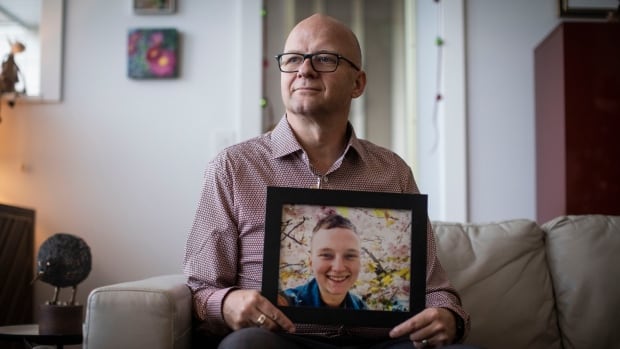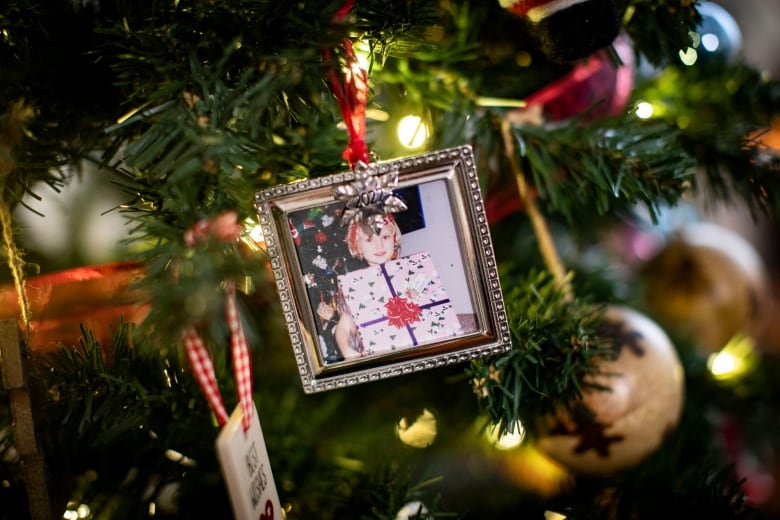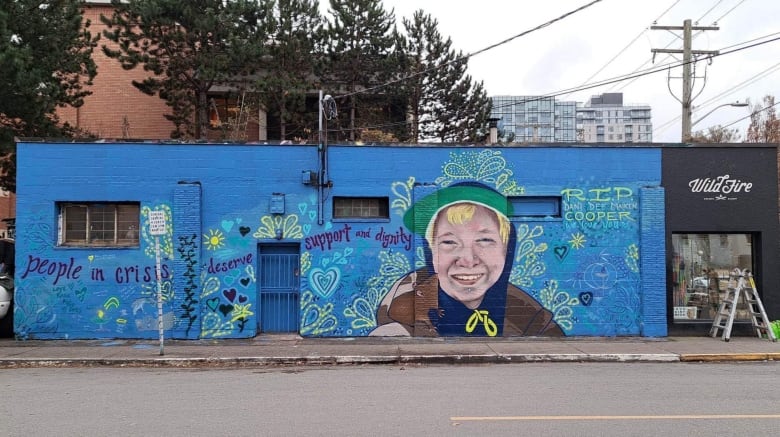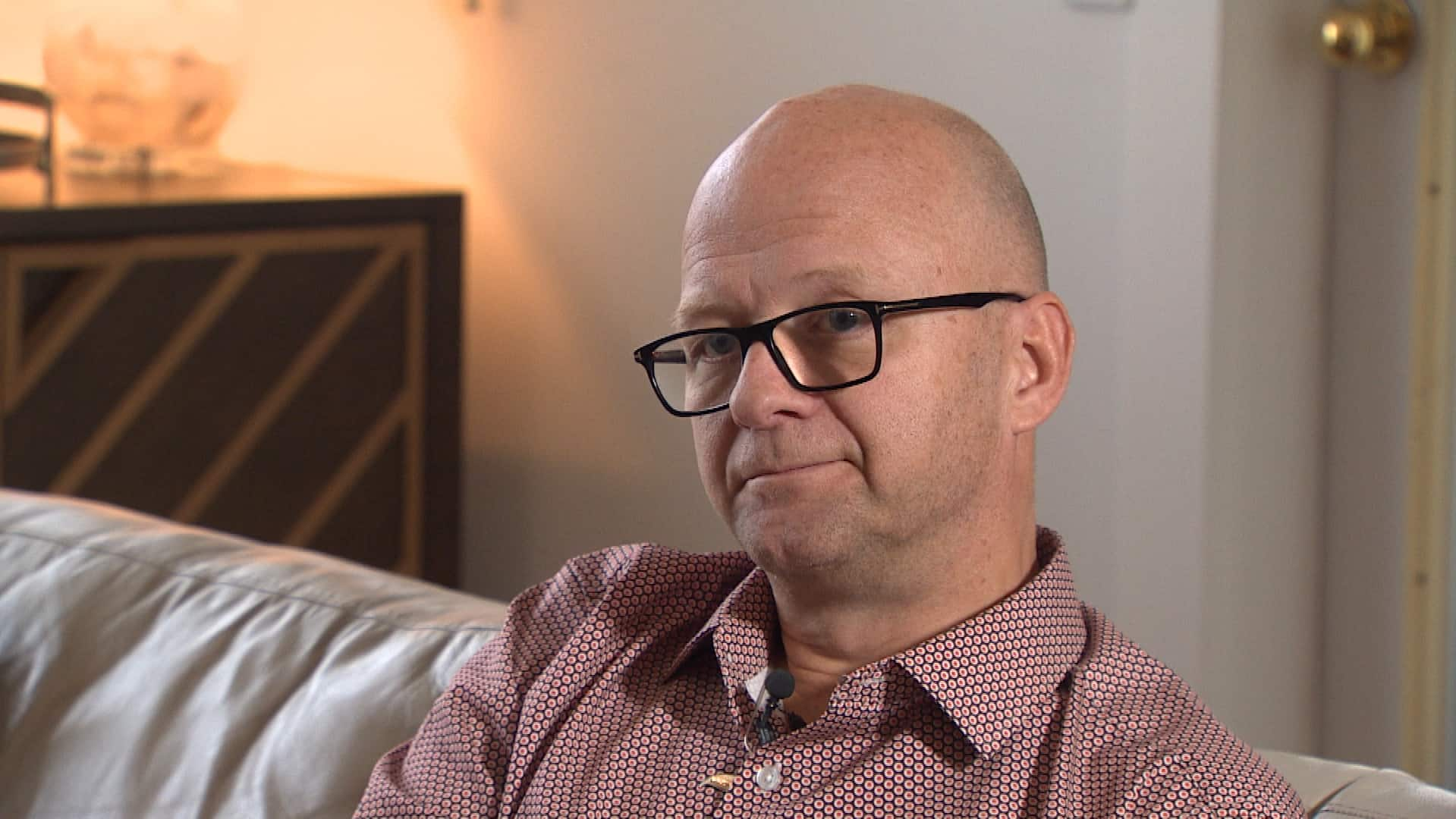
Dani Cooper, 27, believed the world could be better. They spent much of their time jotting down poetry, writing and recording songs, and building a community around the social justice causes they were most passionate about.
Their guiding cause, according to Dani’s father, Dennis, was the belief that armed police officers weren’t suited to help people in crisis, whether they be homeless, in mental distress or part of another traditionally marginalized community.
On the evening of Nov. 12, 2022, Dani died after being shot by police outside the North Vancouver co-op where they were living. Family members say police were called by neighbours after Dani, who was experiencing psychosis and felt threatened, wielded a small knife in front of their mother.
In the weeks that have followed, Dani’s family has had no communication with police about the moments leading up to their death. Dennis Cooper, for example, doesn’t know how many times Dani was shot or whether there was an attempt at using non-lethal force to subdue them.
“We just contend that as a 90-pound, five-foot person, [police] should have been able to find another way to deal with it … they could have been pushed off their feet just from this throw cushion,” said Cooper, sitting in his North Vancouver home.
“So we have a hard time understanding why police officers with cut-proof leather gloves and armoured vests and jackets needed to resort to that, that quickly.”
WATCH | Dennis Cooper says he wishes he’d been there:
Dennis Cooper said he doesn’t understand why police had to shoot his 27-year-old child, Dani, who they found in a state of mental distress.
North Vancouver RCMP are not commenting on the shooting, citing an ongoing investigation by the Independent Investigations Office of B.C., the civilian-led police oversight agency that investigates incidents of deaths that may have been the result of the actions or inaction of a police officer.
A statement from RCMP issued the day following the shooting said, “Initial attempts to take the [person] in custody were not successful. A confrontation ensued, which led an officer to discharge their service-issued firearm.”
Dennis Cooper said on that night in November, Dani was experiencing an episode of a schizoaffective disorder, which they had been diagnosed with years earlier. The disorder made Dani unsure of what was real, leaving them feeling scared and threatened.
He said Dani had a small, serrated steak knife, which alarmed their mother, Cooper’s ex-wife. She sought shelter in a neighbour’s unit. Neighbours in the co-op then phoned police for a wellness check, and at least five armed officers attended the scene. Dani was shot at some time after 7:30 p.m. and died around 30 minutes later after being taken to hospital.

Cooper was attending the Bryan Adams concert at Rogers Arena when he got the call.
“We’ve all seen that in the movies where they say, ‘Put down the knife, or I’ll shoot.’ Someone in a mental health psychotic situation doesn’t have the comprehension or the mental capacity to follow instructions or to comply,” he said, adding he continues to struggle with the lack of details around Dani’s death.
“It’s fairly unbelievable that we wouldn’t have basic details or at least the factual basis, let alone the stuff that’s subject to an investigation.”
It could be up to six months before Dennis Cooper learns more details of how Dani died. Ron MacDonald, the chief civilian director of the IIO of B.C., said he knows the wait for answers is difficult for families but that these types of investigations can be highly technical.
“Our investigation considers every aspect and fact that might be relevant to a conclusion around whether the actions of police were justified […] what the assessment of risk was by the police and whether it was appropriate and reasonable in the circumstance,” said MacDonald.
“Cases such as this can include issues of whether or not a person from a historically disadvantaged group may well have been treated differently because they were a member of that group.”
Increase in police-involved shootings
The IIO was created as a civilian-led police watchdog in 2012 after the Braidwood Commission into the police-involved death of Robert Dziekanski at Vancouver International Airport in 2007. In April of this year, the IIO requested more funds, citing a doubling caseload and insufficient investigators.
A 2018 CBC investigation found that B.C. had the highest rate of police-involved deaths per capita in the country. And the number of police shootings rapidly increased in 2022. On average, the IIO deals with six to seven police-involved shootings every year. But by August of 2022, four months into a new fiscal year, there had already been 15.

At Dani’s celebration of life, printed books of their poetry were handed out. A mural of Dani has been painted at Wildfire Bakery in Victoria, where Dani would frequently hang out with friends while completing their degree in social justice at UVic.
Dennis Cooper said he’ll continue to advocate for police to be removed from mental health calls and to push for officers to wear body-mounted cameras, even as he faces his own personal struggle. Earlier this year, Cooper became the class representative in a proposed class action lawsuit against a former North Vancouver teacher accused of multiple counts of sexual assault against former students.
“The old expression, ‘Don’t bring a knife to a gunfight,’ keeps ringing in my head,” he said.
“I hope that police are held accountable for their actions and that we reach some level of understanding as to why this terrible outcome was required.”
